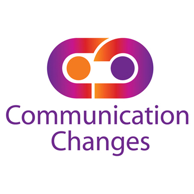|
Welcome to blog post number T W O !
As this blog develops, one of my hopes is hear the voices of my clients talking about their experiences of living with an acquired brain injury. What better opportunity to give voice than in brain injury awareness week 2020. I am really pleased to welcome Tom Holden as the first client contributor. He shares his experience of gaining employment when recovering from a brain injury. Tom was involved in a cycling accident in July 2017 but following rehabilitation was able to return to university to complete his studies. Tom has dysarthria and asked Communication Changes to provide therapy to improve speech intelligibility. We were able to work through a series of exercises from the good old DDK rates right through to preparing a brain injury awareness presentation that Tom will be able to deliver in a range of contexts. Over to Tom, I started my final year of university in September 2018 which is when companies release their graduate scheme application process. I did apply to a few but the most helpful thing I did was to make a list of the graduate schemes that I wanted to apply to the following September. Fast forward 12 months and I was ready to hit the ground running with my applications! The challenges I faced and how I negotiated them: A lot of companies include a one-way video interview in their selection process. I found this particularly challenging as you only get 30 seconds from the time that the question appears to when you have to start your recorded answer. This was a particular problem for me as during my time in hospital, we discovered that the introduction of time pressure had a resulted in my brain going into a meltdown and not being able to function. I negotiated this by researching common questions and preparing answers which I could adapt if required. This helped because instead of spending 30 seconds floundering for an answer, I already knew the rough answer I was going to give, and I could spend the time thinking about how I could adapt it. I also noticed that the computers audio distorted my speech and reduced the clarity of the words that I was saying. As the video interview only gives you a short amount of time to make an impression, I was worried that I wasn’t leaving a positive one! Therefore, I spent a lot of time practicing my answers in my own time into the computer’s video camera. This allowed me to listen back to it and identify any areas that I found problematic. A very useful tip that Mary gave me was to actively slow down when saying a pair of words that are commonly said together. My speech was only going to improve if I tirelessly practiced and corrected the things that I noticed were wrong! Recording my answers in this way was very beneficial. I think that it is vital to practice these in my day to day speech not just the therapy sessions. Practicing these video recordings also allowed me to see what I looked like on the screen and if there were any distractions in the background. It is well worth checking the lighting as this can drastically change your appearance. One of the schemes that I applied for was the Business Graduate Scheme at Williams Advanced Engineering. I was invited for an assessment day which included an interview in October. I was nervous as not only was I aware that my speech could occasionally lose clarity, but it was also my first ever face to face interview! I remembered the techniques that Mary had taught me in our therapy sessions and took a few deep breaths to avoid getting too flustered. Additional tips: The additional tips that I would give for anybody trying to improve their speech, whether it is for an interview or just in day to day life, would be to:
Initially I was struggling to produce certain sounds and pairs of letters but with lots of practice I managed to improve in these areas. Also, the more I practiced the more I became aware of words and phrases that tripped my speech up. Therefore, I could implement the techniques that I had learnt to improve my speech more naturally in day to day speech and in interviews. It is well worth practicing in front of other people and asking for their feedback! This improves your confidence on the day and helps you to project both your voice and your appearance. 2. Own the brain injury Initially I was worried about how the interviewer would react to learning that I had a brain injury. I was comfortable talking about my brain injury and portrayed it in such a way that it highlighted the positive aspects of my character. Focus, commitment and resilience are some of the key personality traits that the interviewer is looking for in potential candidates and there is no better example of this than in your battle back against a brain injury My journey: Throughout my recovery I kept the dream of regaining my independence at the forefront of my mind. I thought of every little improvement as a small step in the right direction and it is the accumulation of all these steps that result in the bigger improvements and you achieving your long-term goal! Tom Holden A huge thank you to Tom for sharing his story and the value of speech therapy in preparing for the interview process. For those who are wondering, Tom did get the job! He starts in September 2020 but in the meantime he is working on the frontline in a local supermarket.
0 Comments
|

 RSS Feed
RSS Feed
